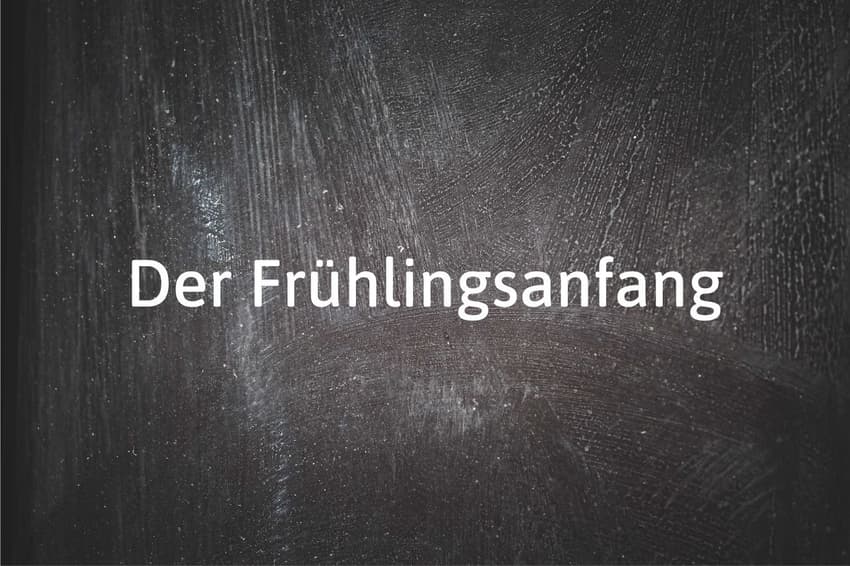German word of the day: Der Frühlingsanfang

Spring has sprung and so has our word of the day.
Der Frühlingsanfang is one of those longer German words that prove that you can basically combine an arbitrary number of words and create one long super word.
Translated, it means “The beginning of spring.” It consist of the words Frühling (“spring”) and Anfang (“beginning.”)
Frühling has been used since the 15th century. Before that, Frühling has been called Lenz (which comes from the old German word for March – Lenzing). It is created by combining the adjective früh with the ending –ling.
Früh comes from the Mid High German word vrüe(je) and the Old High German word fruoji, which both translates to “early.” –Ling is a so-called derivational morpheme, which is basically used to create a new word out of an old one. In this case, it makes the adjective früh become the noun Frühling.
Anfang or Beginn is one of the older German words as we know it, and has been used since the 9th century. It has its roots in the Old High German anafang and the Mid High German an(e)vanc, which both means “beginning.”
So if you need a break after this linguistic digression, how about a little walk to enjoy the Frühlingsanfang outside in all its new colours and scents?

Beautiful spring weather in Austria. (Photo by JOE KLAMAR / AFP)
Examples:
Der Frühlingsanfang war dieses Jahr am 20. März.
March 20th marked this year’s beginning of spring.
Meine Stimmung hebt sich jedes Jahr zum Frühlingsanfang.
My mood rises at the beginning of spring each year.
Zum Frühlingsanfang blühen immer so schöne Blumen.
Beautiful flowers bloom at the beginning of spring.
Comments
See Also
Der Frühlingsanfang is one of those longer German words that prove that you can basically combine an arbitrary number of words and create one long super word.
Translated, it means “The beginning of spring.” It consist of the words Frühling (“spring”) and Anfang (“beginning.”)
Frühling has been used since the 15th century. Before that, Frühling has been called Lenz (which comes from the old German word for March – Lenzing). It is created by combining the adjective früh with the ending –ling.
Früh comes from the Mid High German word vrüe(je) and the Old High German word fruoji, which both translates to “early.” –Ling is a so-called derivational morpheme, which is basically used to create a new word out of an old one. In this case, it makes the adjective früh become the noun Frühling.
Anfang or Beginn is one of the older German words as we know it, and has been used since the 9th century. It has its roots in the Old High German anafang and the Mid High German an(e)vanc, which both means “beginning.”
So if you need a break after this linguistic digression, how about a little walk to enjoy the Frühlingsanfang outside in all its new colours and scents?

Examples:
Der Frühlingsanfang war dieses Jahr am 20. März.
March 20th marked this year’s beginning of spring.
Meine Stimmung hebt sich jedes Jahr zum Frühlingsanfang.
My mood rises at the beginning of spring each year.
Zum Frühlingsanfang blühen immer so schöne Blumen.
Beautiful flowers bloom at the beginning of spring.
Join the conversation in our comments section below. Share your own views and experience and if you have a question or suggestion for our journalists then email us at [email protected].
Please keep comments civil, constructive and on topic – and make sure to read our terms of use before getting involved.
Please log in here to leave a comment.